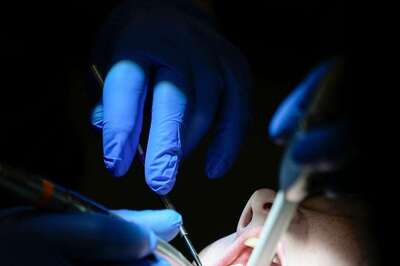
views
Protein is one of the key macronutrients our body needs for muscle development as well as for the proper function of tissues and organs. Protein is synthesized and carried to different parts of the body via the bloodstream, where it’s put to good use by the muscles, tissues and cells. But what happens when the protein jumps ship and makes its way into your urine? The answer is proteinuria.
Technically defined as the presence of protein in the urine, proteinuria is considered to be a sign of kidney damage and likely to indicate that you are at a high risk of developing chronic kidney disease (CKD), which is a highly debilitating disease that also leads to a higher risk of early death. While the most common causes of CKD are diabetes, high blood pressure and obesity, proteinuria is considered to be an early warning sign of it.
Therefore, the risk of developing CKD is likely to go down if you keep proteinuria at bay. Here’s everything you need to know about proteinuria to be able to prevent it.
Causes of proteinuria
Proteinuria can be caused by a wide variety of issues, including dehydration, low blood pressure, kidney stones in the urinary tract, immune disorders like lupus, kidney inflammation, heart disease, kidney cancer, trauma and poisoning. Pregnant women who experience preeclampsia are also likely to have proteinuria.
A recent study published in the journal Nutrients found that proteinuria can be caused by unhealthy eating habits. Eating too quickly, late dinners, late evening snacking and skipping breakfast were the chief unhealthy eating habits that led to the incidence of proteinuria in an average period of three years. Proteinuria was found in the participants of this study even when they did not gain weight or become obese, indicating that you could be in shape and still develop proteinuria if you have unhealthy eating habits.
Symptoms of proteinuria
The Cleveland Clinic says that in many cases, patients of proteinuria do not have any symptoms as they are more likely to show up when the condition has advanced. The following are some symptoms of proteinuria you should note and consult a doctor about immediately:
- Frequent urination
- Shortness of breath
- Tiredness
- Nausea and vomiting
- Swelling in the face, belly, feet or ankles
- Lack of appetite
- Muscle cramping
- Foamy or bubbly urine
- Puffiness around the eyes
Treatment and prevention of proteinuria
The treatment of proteinuria depends on the underlying cause of the disease. Usually, the recommended treatment protocol includes a combination of medication, diet changes, weight loss and increased exercise levels. If proteinuria is accompanied by other diseases like diabetes or hypertension then taking appropriate treatment for those chronic diseases can reduce the protein levels in urine too.
Preventing proteinuria is more of a challenge but can be done if you reduce your risk of all the causes of proteinuria. Leading an active and healthy lifestyle with your eating habits in good order is your best bet against developing proteinuria and subsequently CKD too.
For more information, read our article on Proteinuria.
Health articles on News18 are written by myUpchar.com, India’s first and biggest resource for verified medical information. At myUpchar, researchers and journalists work with doctors to bring you information on all things health.
Read all the Latest News, Breaking News and Coronavirus News here


















Comments
0 comment